‘Bay of Blood’: A powerful call for recognition and justice
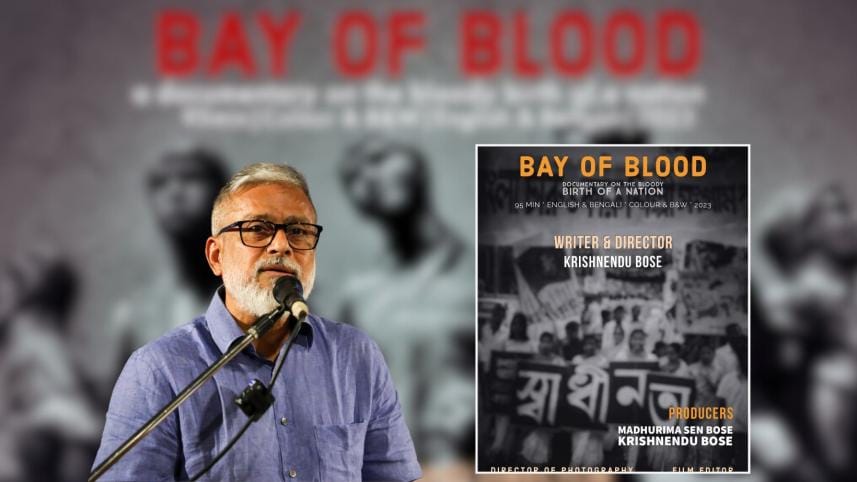
In the hushed shadows of history's darkest hours, there are tales that defy the erasure of time, stories that demand to be told, no matter how many decades have passed. Among these haunting chronicles, one stands as a testament to the indomitable spirit of a nation, a story etched in blood and courage, and an unsung chapter in the annals of human suffering and resilience– the Bangladesh Genocide, also known as the Gonohotta. Krishnendu Bose's directorial "Bay of Blood" is a searing feature documentary, a gripping narrative that takes you on a journey through the heart-wrenching history of Bangladesh's birth, unearthing the chilling truths of a genocide that echoed across the ages.
"Bay of Blood" held its premiere at the Liberation War Museum yesterday afternoon, marking a significant event in its mission to shed light on the historical horrors of genocide. Earlier, the documentary has made waves with a screening in India on August 14.

The welcome address was graciously hosted by Mofidul Hoque, a trustee of the Liberation War Museum. The event garnered prominence with the presence of Pranay Verma, the high commissioner of India in Bangladesh, as the special guest; and Masud Bin Momen, the senior secretary of the Ministry of Foreign Affairs of Bangladesh, serving as the Guest of Honour.
"Genocide is a process, not a fact"— the opening statement by Daniel Feierstein, director of the Centre of Genocide Studies at the National University of Tres de Febrero, Argentina, set the stage for the documentary's primary focus— exploring the hows and whys of genocide.
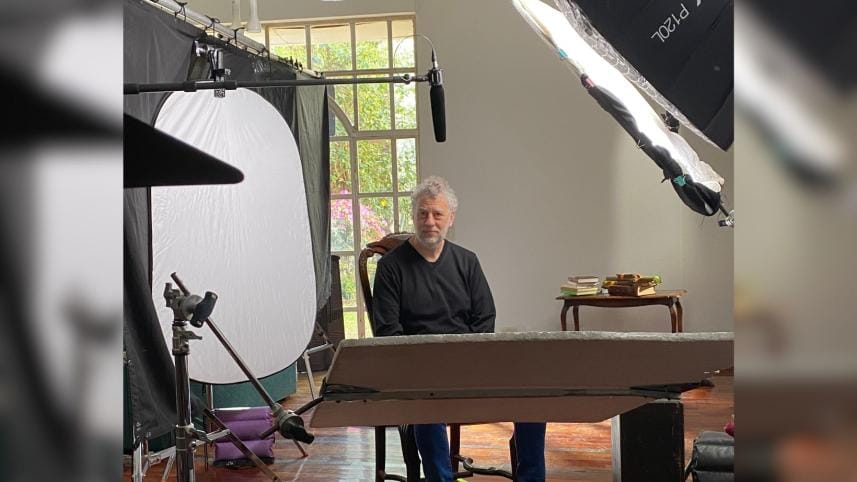
The 95-minute documentary features an array of prominent testimonies, including those of army defectors, former peasants turned freedom fighters, survivors of genocide, eyewitnesses to Operation Searchlight, rape survivors, political figures from the time, the first Bengali cricket player on the Pakistan Cricket Team in 1971, family members of Genocide victims, and students from Dhaka University, among others. The film serves as a call to action, urging individuals worldwide to support the Bangladeshi people in their quest for justice and healing from the wounds of 1971.

The heart of the documentary delves into the genocide, examining its execution and seeking to piece together eyewitness accounts. Rather than making impassioned and definitive statements, the film constructs a deposition, aiming to unearth the truth through rational analysis and triangulation of evidence. This project spans four continents and features contributions from over 25 individuals.
"Bay of Blood" relies on rare and previously unseen archival footage of the genocide and the Liberation War. It incorporates recently declassified portions of the Nixon tapes, providing firsthand evidence of President Nixon and his security adviser Henry Kissinger's involvement, as well as radio communications among Pakistani soldiers on the night of the genocide. These contributor accounts form a critical part of the documentary's narrative.
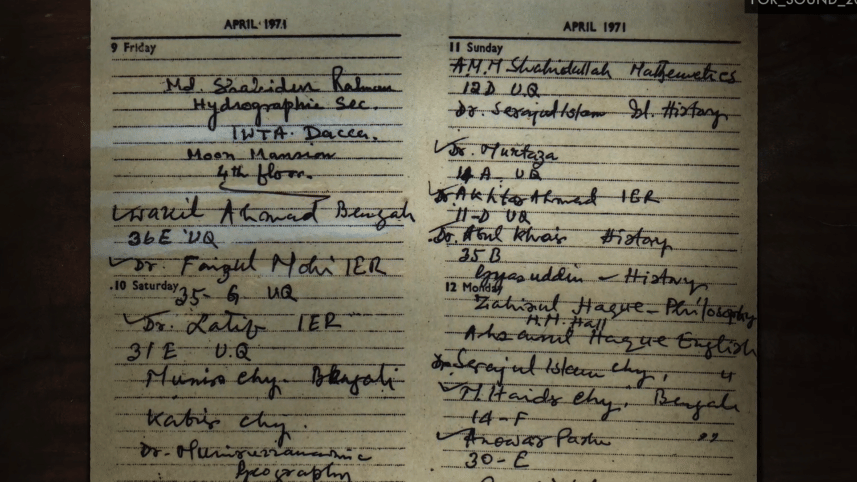
Ironically, while the story of the genocide and the birth of Bangladesh remained unknown to many, it received significant coverage from international news organisations, such as BBC, Reuters, Associated Press, and the Indian Films Division. The "Bay of Blood" team tapped into some of this archival material, enriching the film with essential evidence. Despite the dodgy quality of some recordings, the radio communication of the Pakistan Army on the fateful night of March 25 provides an authentic record of those events and a chilling experience for the audience. The declassified Nixon tapes offer a glimpse into the Oval Office's inner workings and global political machinations.
With breathtaking cinematography, "Bay of Blood" paints a vivid canvas of Bangladesh's capital, capturing its essence through soaring drones and impeccable colour grading. Each frame sets the tone for a haunting historical journey. Yet, what truly captivates and chills the audience in the film is its haunting background score. A symphony of dread and foreboding, it envelops the viewer in an icy grip, leaving an indelible, spine-tingling experience.

Krishnendu Bose, the writer and director, played a pivotal role in bringing this project to life. Partnered with Madhurima Sen Bose, they jointly produced the film. Jeremy Jeffs, renowned for "The Story of India" for BBC, served as the director of photography, while David Fairhead, an experienced film editor, lent his expertise to the project. The film is a self-funded independent endeavour by Earthcare Productions Ltd, Delhi, and was completed in July 2023, with plans to seek broadcasting and OTT partners.
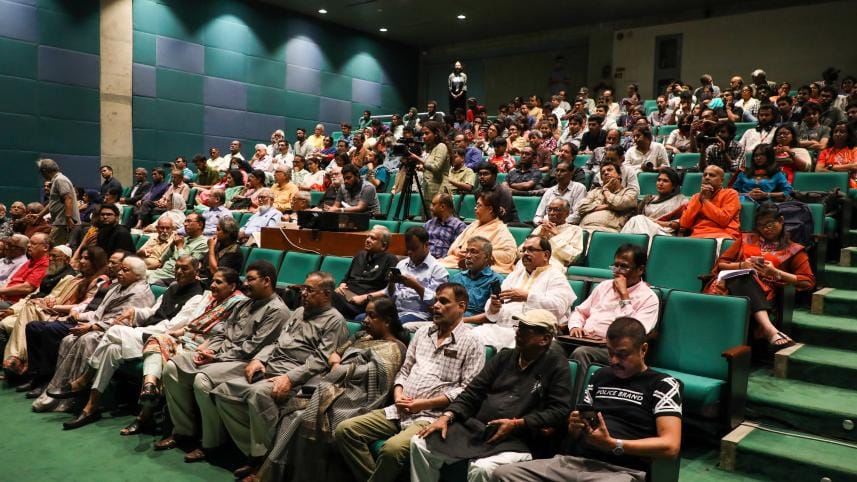
The screening culminated in an engaging Q&A session, where genocide survivors, family members, and descendants shared their emotions and recollections of the Pakistan Army's torture and killings during the nine months of the Liberation War.
Krishnendu Bose's personal journey
Reflecting on the motivation behind the documentary, Krishnendu Bose, a filmmaker with a background in wildlife conservation and environmental justice, shared his personal journey. His decision to delve into this particular subject was inspired by the impending 50th anniversary of Bangladesh's independence in 2019.
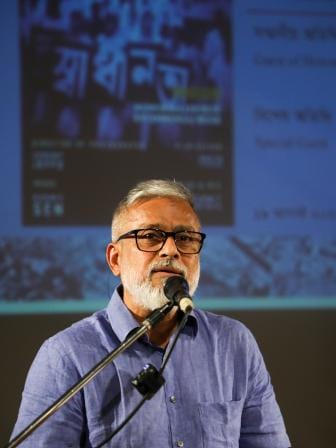
"The first time I thought of telling the story of the birth of Bangladesh was in the Autumn of 2019. With the nation's 50th year of independence looming just two years away, it was a good opportunity to revisit the struggles and bloodshed the country had to go through to become an independent nation," he said.
After extensive offline research, Krishnendu Bose spent ten days in Dhaka and interviewed a cross-section of people who helped him understand the bigger picture of the genocide.
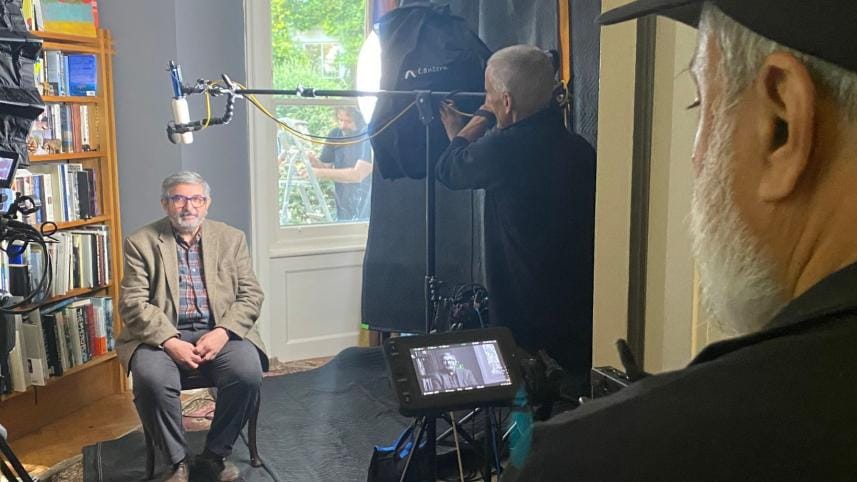
"My readings and offline research had in no way prepared me for this overwhelming, gut-wrenching sensory assault. The story was huge and global. It had myriad threads," he expressed.
He then showcased a 10-minute trailer at Cannes and received a shocking response. It became apparent that the global community had limited knowledge of this Holocaust-like genocide, motivating Krishnendu to proceed despite the challenges. By the onset of Covid in early 2020, he was determined to make the film.
"It wasn't just for the ignorance of the world; I also felt there was an arrogance of sorts to stories from the South Asian part of the world of the 1970s," the filmmaker said.
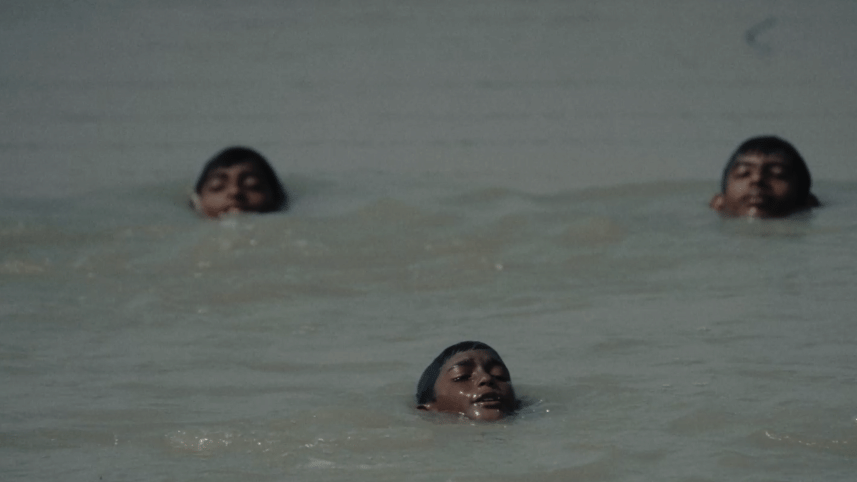
"Bay of Blood" sheds light on the genocide during Bangladesh's birth and the imperative need for international recognition. It underscores the importance of justice, apologies, reparations, and compensation for victims, offering solace to survivors and their families.
It's worth noting that recognition of genocides has varied significantly in different cases. Some, like the Rwandan and Cambodian genocides, gained international recognition relatively swiftly. The genocides in former Yugoslavia also drew prompt attention on the global stage, resulting in the trial of Serb generals for war crimes in the International Court of Justice. More recently, the US government officially labelled the horrific treatment of the Rohingyas by Myanmar authorities as genocide. The process of seeking recognition and redress for genocides varies from case to case, influenced by numerous factors, including the passage of time. However, one undeniable truth emerges: the pursuit of justice for such heinous crimes knows no expiration date.
Despite taking 50 years, the world has finally begun to acknowledge this tragedy, with four international organisations— Lemkin Institute for Genocide Prevention, International Coalition of Sites of Conscience, International Association of Genocide Scholars (IAGS) and Genocide Wa—recognising the genocide. Yet, despite 75 years having passed since the UN Convention on the Prevention and Punishment of the Crime of Genocide came into force, official recognition of the genocide in Bangladesh remains elusive.
The documentary, designed for an international audience, seeks to inform the world about the brutal genocide that occurred. As the filmmaker aptly put it, "We have kept it very simple yet very powerful." The film concludes with a potent message of tolerance, emphasising the importance of embracing diversity in religion, caste, and way of life to foster a more peaceful world.




 For all latest news, follow The Daily Star's Google News channel.
For all latest news, follow The Daily Star's Google News channel. 
Comments